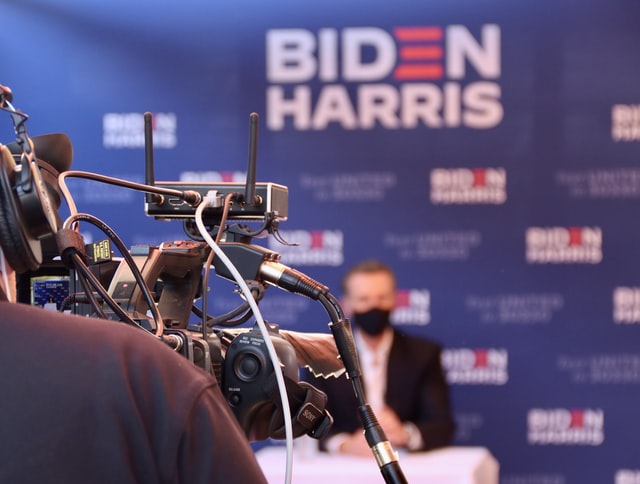In office for under a month, Joe Biden has spent his time signing executive orders— more than 40 in total. In his first day of office alone, the President repealed many of his predecessor’s actions, including rejoining both the Paris Climate Agreement and World Health Organization, reversing the travel ban from predominantly Muslim countries, and revoking the exclusion of undocumented immigrants from the census.
Arguably, many of these now-overturned actions were initially pursued by the previous president with bigoted and dictatorial intent as well as hastiness. Their reversal signifies a return to policy revolving less around malevolence and more around humanity. Nonetheless, the urgency taken by President Biden to upend these orders passed by the Trump Administration warns of an increase in the passage of sectarian policies, rather than bipartisan ones, that may prevail through presidencies.
While these actions align with Biden’s campaign promises and are suggestive of the greater reforms that the administration plans on pursuing throughout the next four years, immense controversy has already emanated, notably concerning the COVID-19 pandemic, the climate crisis, and measures to combat systemic inequality.
The area of policy that Biden has touched upon the most is addressing climate change. In the last three weeks, the country has already seen the President beginning to fulfill his campaign promise to achieve a 100% clean energy economy and reach net-zero emissions by 2050.
Through executive actions, key changes within the structure of the government were established, ensuring that domestic and global climate consideration will have a seat at the table and be considered during every policy decision. The newly established National Climate Task Force— assembled with leaders from over twenty federal agencies and departments—further signifies this obligation.
New positions exemplify the administration’s commitment not only to domestic reforms that address climate change, but an aspiration for the United States to take the lead in global climate initiatives. For the first time in history, Biden established the United States Special Presidential Envoy for Climate—an executive office position currently held by former Secretary of State John Kerry—responsible for working with international governments to inform them on US policies on climate and encourage similar changes.
Arguably most controversial of these executive orders remains Biden’s cancelation of the Keystone Pipeline. This action not only received disapproval from Republicans, but from international figures such as Canada’s Prime Minister Justin Trudeau. Critics of this action have cited the loss of thousands of jobs that resulted. And while the President’s plan to revert to a greener energy system claims to establish ten million jobs, there seems to lack an immediate replacement for the unemployed—a more concerning problem while amid a global pandemic.
Turning to the Biden administration’s efforts to assist struggling families in combating the economic burdens stemming from COVID-19, Congress remains heavily divided over a relief proposal. Despite meeting with a group of ten moderate Republicans prior to the bill’s discussion in the Senate—initially suggesting a fulfillment of the promise to appeal to bipartisan interests—the President ultimately encouraged the Senate to initiate the passage of this proposal through a budget reconciliation, which unusually only requires a majority vote.
Within this proposal includes the additional $1,400 stimulus checks that Biden promised. Nonetheless, this was not the most controversial aspect of the COVID-19 relief bill. Rather, Republicans and a few moderate Democrats articulated their disagreement with the provision to increase the federal minimum wage to $15 an hour, citing the difficulties that small businesses would face to increase wages during a pandemic. Ultimately, this amendment was removed during floor debate.
Lastly, in addressing inequality, systemic racism seems to be an issue of prioritization for this administration following the nationwide protests in support of the Black Lives Matter movement. Biden’s executive actions seem promising in initiating eventual reform.
So far, the Biden administration has reversed the former President’s discriminatory order to prevent transgender participation within the military, directed the Department of Justice not to make or renew any contracts with private prisons, and authorized federal agencies to work with tribal governments.
While these may not be the major changes that some of the country has been waiting for, these executive orders demonstrate the prioritization that Biden places upon various issues of equity. It will remain interesting to see, however, if there even remains a potential for this commitment to be carried through in a greater, bipartisan aspect, considering the divides within Congress.
Nonetheless, with calls for reform in various areas of policy, it is often easy to forget that addressing the COVID-19 pandemic must remain at the forefront of the Biden administration’s agenda.
After reviewing the passage of executive order seeking to address climate change, the COVID 19 pandemic, and equity, it seems that Biden has so far kept his campaign promises. But the question remains: Will this come at the price of another era of partisan politics?
Featured Image courtesy of Manny Becerra via Unsplash



















































































































